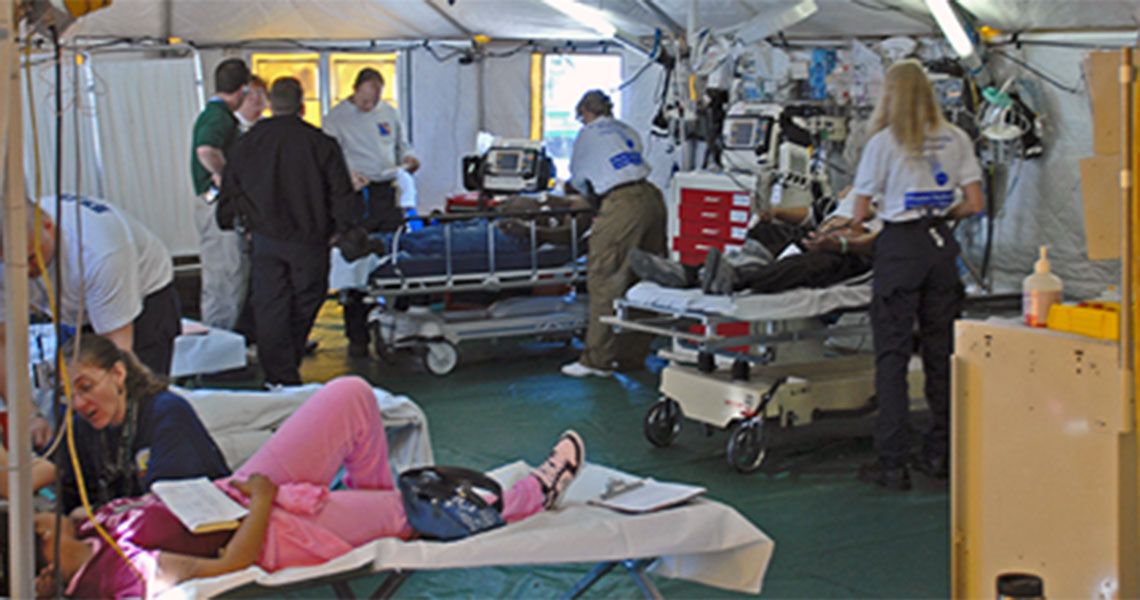Christine George is quick to admit that she’s a bit of an adrenaline junkie. “It’s horrible when disasters happen,” she says, “but when there’s something you can do about it for those who are suffering, it’s incredibly rewarding.”
Because of this inclination, George, a third-year medical student at the George Washington University School of Medicine and Health Sciences (SMHS), chose to follow the Emergency Management track during her medical education.
The Emergency Management track is one of nine elective paths offered to medical students by the Office of Student Opportunities. Through distinct learning objectives, special seminars, one-on-one mentorship, and hands-on experience, the track program offers students a broader health care perspective and exposure to leadership opportunities.
George cites the three months she spent working at the American Red Cross national headquarters as a particularly fulfilling aspect of her experience on the track. When Hurricane Irene pummeled the East Coast in August 2011, George volunteered with the organization’s disaster health services department to coordinate shelters and other health-related operations. “It helped me appreciate that you don’t need to go to the other side of the world to come across a natural disaster or other emergency situation where trained medical personnel are needed.”
Bruno Petinaux, M.D., G.M.E. ’02, assistant professor of emergency medicine at SMHS and co-chair of the emergency management program at GW Hospital, serves as director of the Emergency Management track. “Emergency management is about how you prepare, prevent, respond, and recover from a disaster,” Petinaux says.
After five years as track director, Petinaux continues to be amazed — and encouraged — by the diversity of students who enroll in the track. “I have had students go into OBGYN, internal medicine, psychiatry, orthopedics, emergency medicine, and honestly, I’m really happy to see that,” he says. “When there is a disaster it’s great to know that we have a psychiatrist or orthopedic surgeon who knows how to respond and what the principles are in that response. I think that’s a huge success.”
Petinaux, who is also a medical team manager for the Virginia Task Force 1 Urban Search and Rescue Team and a Major in the U.S. Army Reserve Medical Corps, says that his role is to mentor students not just for the track, but also as future professionals. One benefit of the small size of the track — just 20 students are currently enrolled across the four years of medical school — is that it allows Petinaux to spend more one-on-one time with each student. “I really enjoy the interaction with the students and I think it makes it more personal for them to get to know a faculty member,” he says. “It allows them to ask questions and be involved in a more relaxed atmosphere rather than a very standardized lecture.”
Petinaux’s efforts with his students are not in vain. In fact, George says that Petinaux’s mentorship has been the highlight of the track for her. “He’s a subject matter expert, a wonderful teacher, and is able to help students tease apart and learn how to think about these types of situations,” she says. “Since he’s a part of international response teams, he’s able to provide a really amazing practical, relevant approach to get us to think about how to deal with these types of complex problems.”



